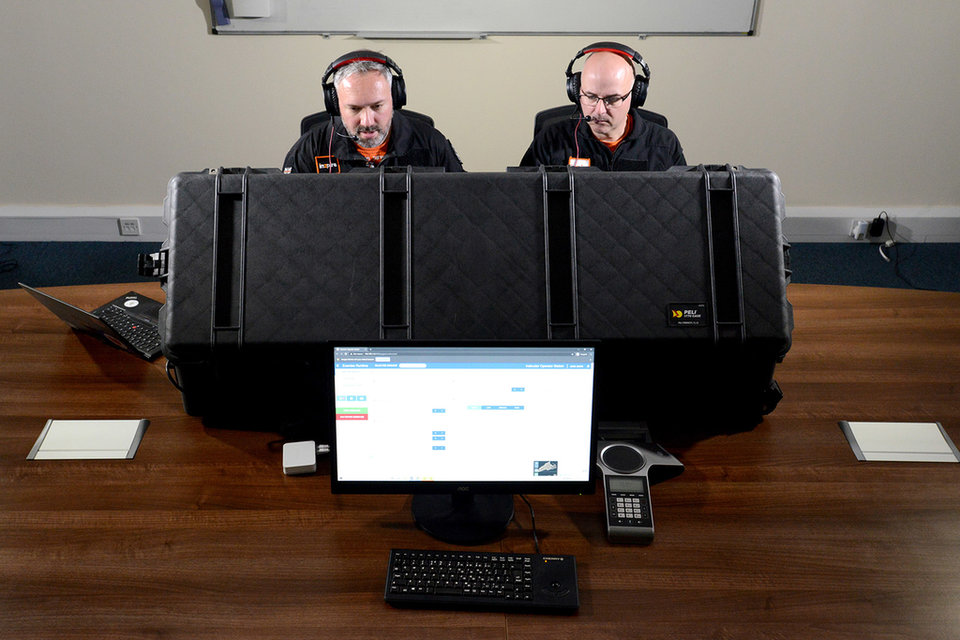Space
SME acquisitions help primes launch further into space sector
Defence primes are enhancing their space domain capabilities like never before and are acquiring SMEs to bolster their offerings. Berenice Healey looks at recent acquisitions by BAE Systems and Raytheon and the drivers behind them.
Defence primes are enhancing their space domain capabilities like never before and are acquiring SMEs to bolster their offerings. Berenice Healey looks at recent acquisitions by BAE Systems and Raytheon and the drivers behind them.
Space is big. Not just in the astrophysical sense, but it is rocketing to the top of many of the major defence manufacturers’ priority lists.
But the sector is moving too fast for them to nurture all the space talent and technology they need internally. In many cases, specialist small and medium-sized enterprises (SMEs) are lightyears ahead. Their know-how combined with the primes’ dollar stands to send space innovation into orbit.
Low-earth orbit capability
BAE Systems announced at DSEI that it is had acquired In-Space Missions, a UK company based in Hampshire that designs, builds and operates low-Earth orbit (LEO) satellites and satellite systems.
Announcing the acquisition, BAE Systems CEO Dr Charles Woodburn said: “Space is of vital importance to our customers. Here in the UK, Space Command was officially stood up earlier this year, marking it as a military domain in its own right alongside sea, land, air and cyber. There have been similar developments in the US, Australia and elsewhere.”
He explained that, while BAE Systems is well known for its platforms and services across all domains, that is less so in space. However, it has been active for decades in supporting expertise such as waveforms, electronics and secure communications technologies, that have helped track satellites during missions more than a billion kilometres away from Earth.
“I'm pleased to say that today marks an important new step for us through the acquisition of In-Space Missions, a UK company specialising in low Earth orbit satellites,” he added. “The new low-Earth orbit capability means we can do even more for our customers, helping to securely link, other domains and provide resilient secure communications.”

// Inzpire manages helicopter training for the European Defence Agency. Credit: Inzpire.
Repurposing space assets
Space missions are not known for minimising their effect on the environment, but In-Space Missions CEO Doug Liddle said that the new partnership would include a keen eye on sustainability.
“Our focus is on sharing, reusing and repurposing space assets,” he said. “In doing so, we are looking to provide the lowest cost and the most responsive access to space on the market, offering a physical offering is where we co-host multiple payloads on a single satellite.”
Known as Faraday Service, the capability reduces time to orbit for new entrants in the space sector from around three to four years to a matter of days or weeks. Liddle added that LEO was of particular interest as it enables high-resolution imaging with low latency, and these orbits are readily accessible by launch vehicles, including ones from the UK mainland.
We will be able to rapidly grow both our military and commercial offerings
In-Space Missions’ major programmes include an R&D programme to scale up the Faraday Service supported by European Space Agency and the UK Space Agency. It is also delivering two satellite missions for the UK’s Defence Science and Technology Laboratory on Prometheus-2 satellite with Airbus and is working on the £9.5m Titania satellite to demonstrate military uses for direct-to-Earth free-space optical communications.
While the company has enjoyed great success on its own, Liddle explained that the strategic reasons for joining BAE Systems are scale and capability, plus it will bring a wealth of new capabilities and technologies to improve its services.
“We look forward to collaborating with the deep areas of space expertise spread across the BAE group as its space missions move into the future,” he added. “We will be able to rapidly grow both our military and commercial offerings, bolstering the UK space offer and contributing to national prosperity.”
Raytheon’s space electronics acquisition
Not all of the specialist space companies being snapped up by primes are fully-fledged satellite companies. On the same day as BAE Systems unveiled its acquisition of In-Space Missions, Raytheon Technologies announced that it would acquire Colorado-based privately-held advanced space electronics specialist SEAKR Engineering.
Raytheon Intelligence & Space president Roy Azevedo said in a press release: "Our investment strategy accelerates our agility in meeting a higher standard of performance – the space standard – and expands our core space business with new applications that are shaping our world.
"With SEAKR Engineering, we are enhancing our capability to provide qualified systems faster. SEAKR's culture of forward-thinking innovation will complement our ability to solve our space customers' hardest problems."
Over its 40-year history, SEAKR Engineering has delivered more than 300 flight units with a 100% on-orbit success rate.
"SEAKR Engineering is a forward-leaning business with a determined drive to innovate and do the work necessary to make advancements that enable new possibilities in space," said SEAKR Engineering president and cofounder Scott Anderson.
"Being able to leverage the strengths and expertise of the Raytheon Technologies team, we will have the ability to build on our industry-leading products as part of a larger talented team, equally committed to our customers, employees and values."
// Main image: BAE Systems has acquired In-Apace Missions to bolster its low-Earth orbit satellite capabilities. Credit: BAE Systems